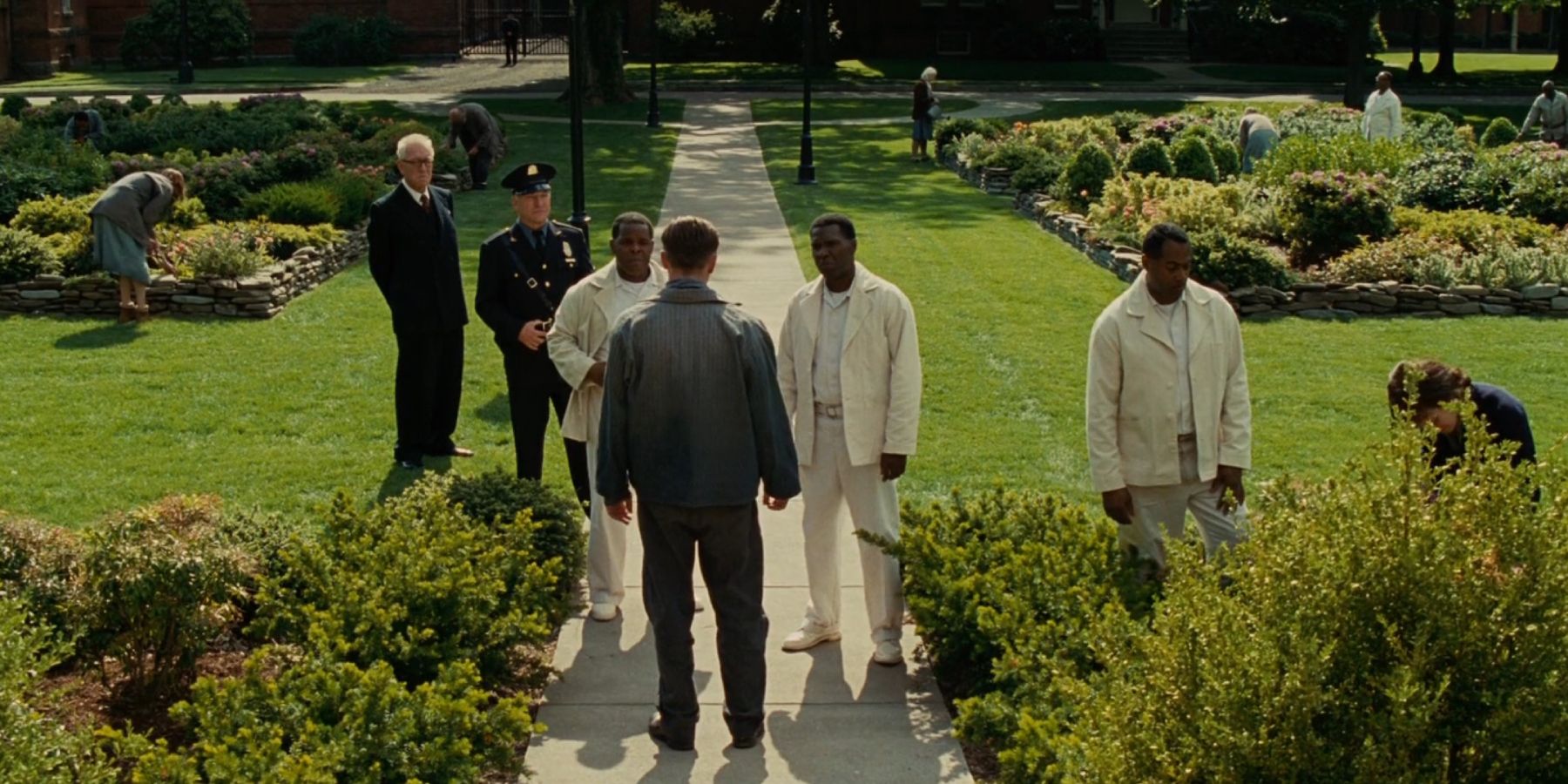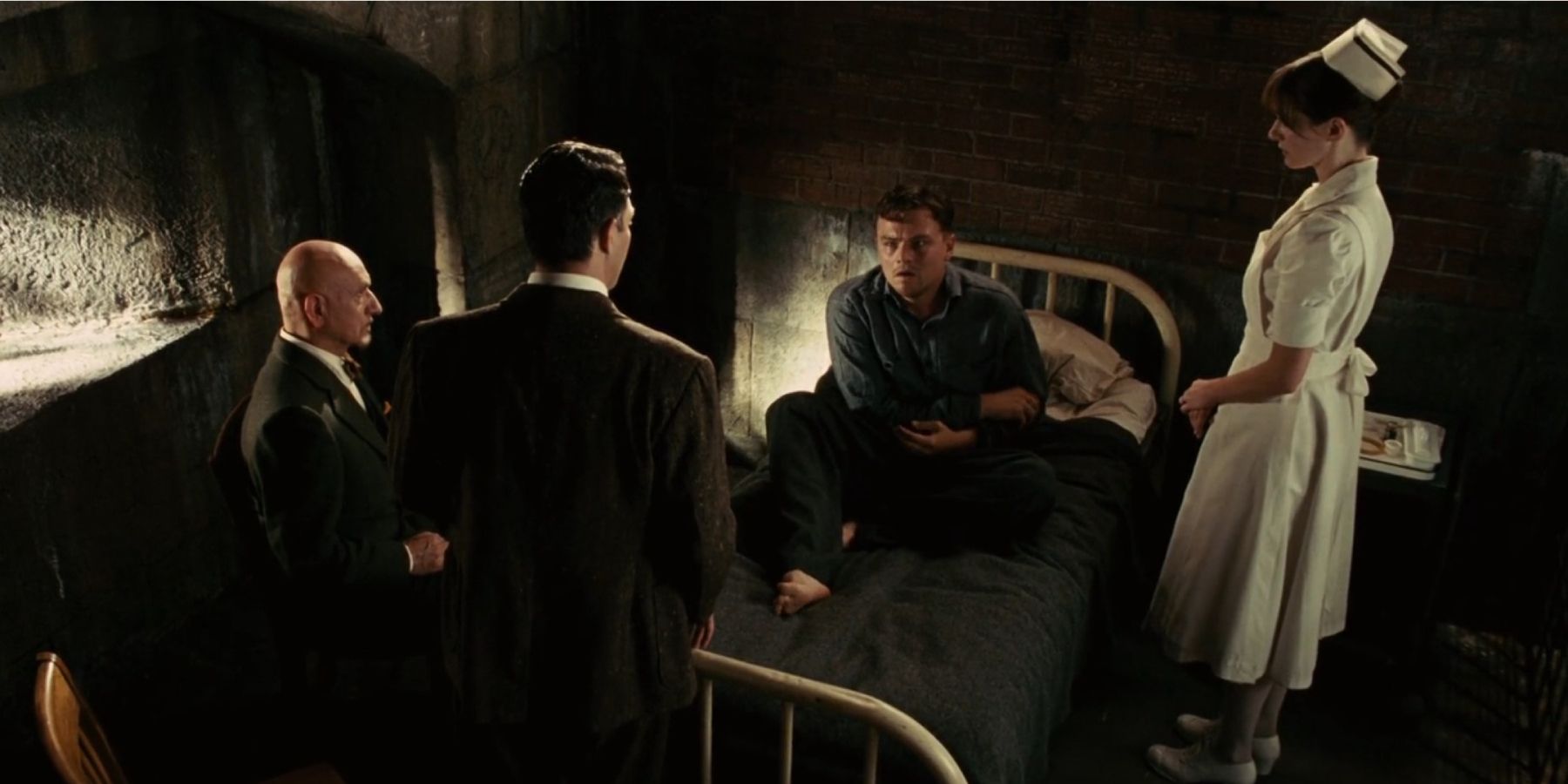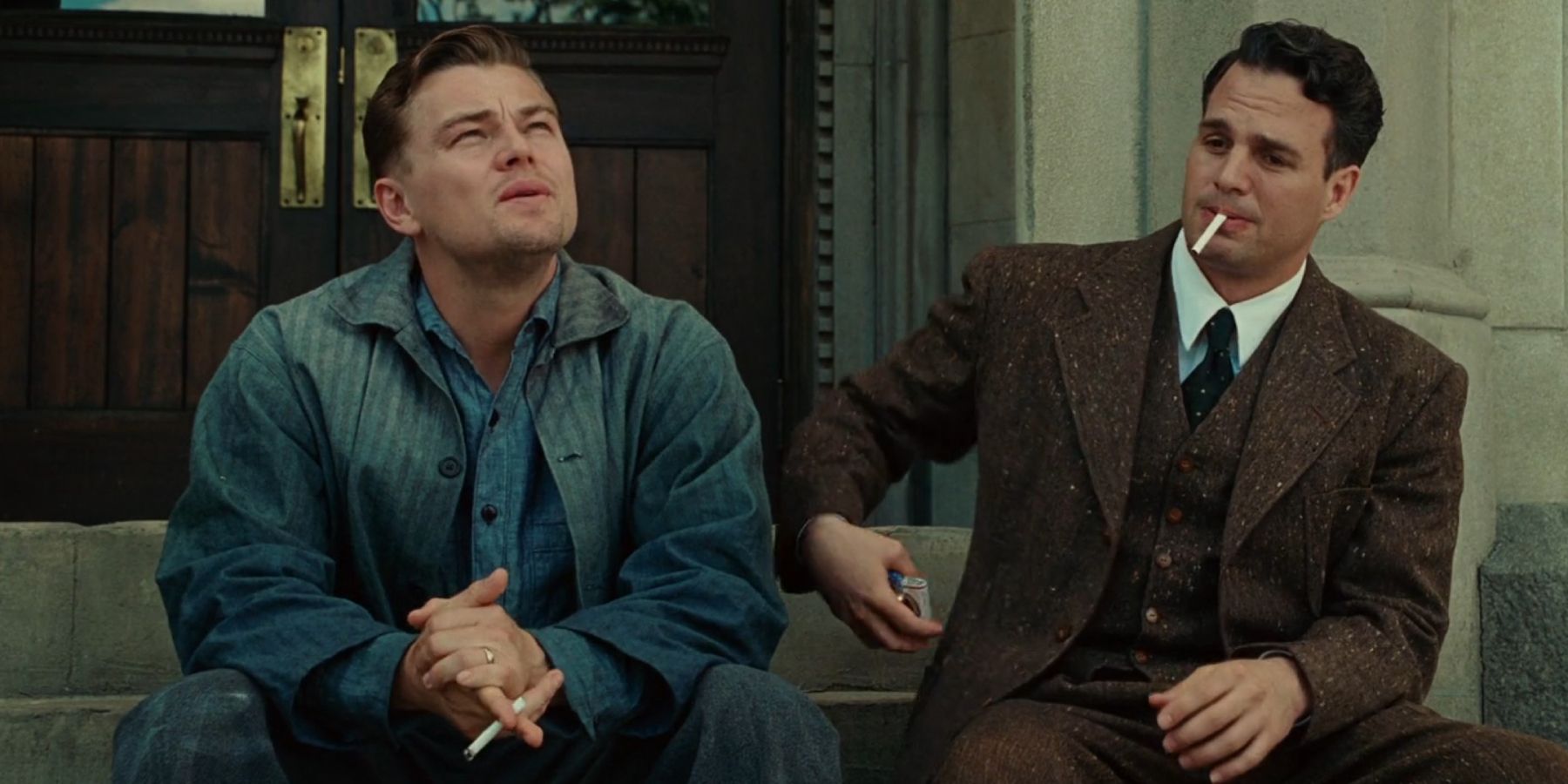Shutter Island is one of those films that leaves you questioning everything, even after the credits roll. Directed by Martin Scorsese and based on Dennis Lehane's novel, this psychological thriller keeps you on the edge of your seat. The ending of Shutter Island is as complex as the story itself, and that's what makes it so fascinating. Whether you're a fan of the movie or just curious about its secrets, this article will dive deep into the mysteries and provide clarity on what really happens in the end.
When you first watch Shutter Island, it feels like a rollercoaster ride through the mind of its protagonist, Teddy Daniels. Played brilliantly by Leonardo DiCaprio, Teddy's journey on the island is filled with suspense, paranoia, and unanswered questions. But it's the ending that truly leaves audiences pondering long after the movie concludes.
So, buckle up because we're about to break down the ending of Shutter Island in a way that makes sense. From hidden clues to psychological interpretations, we'll explore every angle of this mind-bending finale. Let's get started!
Read also:Liza Powel Obrien The Rising Star Whos Got Everyone Talking
Table of Contents
- Introduction to Shutter Island
- Key Characters and Their Roles
- The Plot and Its Complexity
- Common Theories About the Ending
- Psychological Analysis
- Symbolism in the Film
- Shutter Island Ending Explained
- Scorsese's Vision
- Audience Reactions and Interpretations
- Conclusion
Introduction to Shutter Island
Shutter Island is more than just a movie—it's an experience. Set in 1954, the film follows two U.S. Marshals, Teddy Daniels and Chuck Aule, as they investigate the disappearance of a patient from Ashecliffe Hospital for the criminally insane. The hospital is located on Shutter Island, a remote and eerie location off the coast of Massachusetts. As Teddy digs deeper into the case, he starts to uncover disturbing truths about the hospital and its staff.
But here's the twist: Teddy isn't just investigating a case. His own past and memories begin to unravel, and soon it becomes unclear whether he's a marshal or a patient himself. The film plays with your perception of reality, leaving you questioning everything you thought you knew.
Why Shutter Island Matters
This film is a masterclass in storytelling. It challenges viewers to think critically about the nature of sanity, memory, and identity. The ending, in particular, forces you to reconsider everything you've seen, making it one of the most debated conclusions in modern cinema.
Key Characters and Their Roles
Understanding the characters in Shutter Island is crucial to deciphering the ending. Each character plays a significant role in the unfolding events, and their motivations are often shrouded in mystery.
Dr. John Cawley
Dr. Cawley is the head psychiatrist at Ashecliffe Hospital. He presents himself as a compassionate and rational figure, but his actions suggest otherwise. Many viewers speculate that Cawley is manipulating Teddy, using him as a pawn in a larger experiment.
Chuck Aule
Teddy's partner, Chuck Aule, is the voice of reason throughout the film. While he seems supportive, some interpretations suggest that Chuck might be part of the hospital's staff, working to keep Teddy under control.
Read also:Joseph Morgan The Talented Actor Who Stole Hearts With His Charisma
The Plot and Its Complexity
The plot of Shutter Island is layered with twists and turns. At its core, it's a story about a man searching for answers, but it's also a commentary on the psychological toll of trauma and the blurred lines between reality and illusion.
- Teddy's investigation leads him to discover evidence of unethical medical practices.
- He encounters visions of his past, including the tragic fire he set that killed his wife.
- His interactions with the hospital staff raise more questions than answers.
As the story progresses, Teddy's grip on reality begins to slip, and the line between his memories and the present becomes increasingly blurred.
Common Theories About the Ending
There are several theories floating around about the true nature of Shutter Island's ending. Let's break them down:
1. The Dream Theory
This theory suggests that everything Teddy experiences on the island is a manifestation of his subconscious. In this interpretation, the island itself is a metaphor for his fractured mind, and the characters he encounters are projections of his guilt and trauma.
2. The Manipulation Theory
According to this theory, Teddy is indeed a patient at Ashecliffe Hospital, and the entire investigation is a ruse orchestrated by the staff to break his resistance. The evidence he finds is carefully planted to lead him to a predetermined conclusion.
3. The Alternate Reality Theory
This theory posits that Teddy's perception of reality is fundamentally different from the truth. The island exists in a parallel dimension, where the rules of logic and reason don't apply.
Psychological Analysis
From a psychological perspective, Shutter Island explores themes of mental illness, trauma, and the fragility of the human mind. Teddy's descent into madness is both terrifying and relatable, as it reflects the universal struggle to make sense of a chaotic world.
Studies show that trauma can alter the way we perceive reality, and this is evident in Teddy's behavior throughout the film. His flashbacks and hallucinations serve as a reminder of the lasting impact of his past experiences.
Symbolism in the Film
Shutter Island is rich with symbolism, and understanding these elements can provide deeper insight into the ending.
- The Lighthouse: Often interpreted as a beacon of truth, the lighthouse represents Teddy's quest for answers.
- The Storm: The storm serves as a metaphor for the turmoil in Teddy's mind, reflecting his inner conflict and desperation.
- The Fire: The fire that Teddy set is a recurring motif, symbolizing his guilt and the destruction it has caused in his life.
Shutter Island Ending Explained
Now, let's tackle the big question: What really happens at the end of Shutter Island?
In the final moments of the film, Teddy reveals his true identity. He admits that he is Andrew Laeddis, a former patient at Ashecliffe Hospital who set fire to his family home, killing his wife. The line "Which would be worse—to live as a monster, or to die as a good man?" becomes a haunting reflection of his internal struggle.
The film concludes with Teddy undergoing a lobotomy, a procedure that will erase his memories and restore his sanity—or so they claim. Some interpret this as a tragic ending, where Teddy's identity is stripped away, while others see it as a form of liberation from his torment.
Scorsese's Vision
Martin Scorsese is known for his ability to craft complex narratives, and Shutter Island is no exception. In interviews, Scorsese has discussed his intention to create a film that challenges viewers to think critically about the nature of reality.
He emphasizes the importance of leaving certain questions unanswered, allowing audiences to form their own interpretations. This approach adds depth to the film and ensures that it remains relevant and thought-provoking.
Audience Reactions and Interpretations
Audiences have responded to Shutter Island in a variety of ways. Some viewers find the ending satisfying, as it provides closure to Teddy's story, while others feel frustrated by its ambiguity.
Social media platforms and online forums are filled with discussions about the film's meaning, with fans sharing their theories and insights. This engagement demonstrates the film's lasting impact and its ability to spark meaningful conversations.
Conclusion
Shutter Island is a masterpiece of psychological storytelling that challenges viewers to question the nature of reality. The ending, while complex and open to interpretation, offers a poignant commentary on the human condition.
As you reflect on the film, consider the themes of trauma, memory, and identity that run throughout the story. Whether you believe Teddy is a victim of manipulation or a product of his own subconscious, one thing is clear: Shutter Island will leave you thinking long after the credits roll.
So, what's your take on the ending? Share your thoughts in the comments below, and don't forget to check out our other articles for more insights into the world of cinema.


